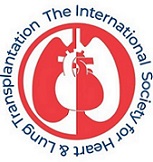Specialty Designation
Fellowship
In same state as program
2
In NHSC or similar underserved area
1
Non-medical career/left country
1
Number of accredited programs
85
Length of accredited training
Minimum number of prior years required
Offers graduate year 1 positions, available immediately upon medical school completion
No
Average number of PY1 interviews
12.60
Percent of programs requiring Step 1 score for interview
26.50
Percent of programs requiring Level 1 score (for DOs) for interview
54.20
Total number of active residents/fellows
Average number of residents/fellows
1.80
Average percent female
44.30
Average percent international medical graduates
40.90
Average number of full-time physician faculty
10.60
Average number of part-time physician faculty
0.00
Average percent female full-time physician faculty
34.50
Average ratio of full-time physician faculty to resident/fellow
6.00
Average hours on duty per week
55.00
Average maximum consecutive hours on duty
17.00
Average days off duty per week
1.50
Average percent of training in hospital outpatient clinics
29.00
Average percent of training in non-hospital ambulatory care community settings
8.00
Average number of days of vacation
22.00
Average resident/fellow compensation
Specialty Overview
Advanced heart failure and transplant cardiology encompasses the unique knowledge and skills required to care for patients with advanced heart failure, and those who have undergone or are awaiting transplantation.
Heart failure and transplant cardiology represents advanced training in cardiovascular disease and focuses on management of advanced or complicated heart failure beyond the scope of what is usually provided by general internists and general cardiologists. This includes treatment of patients with difficult to control heart failure, the ability to implement a wide array of electrophysiologic and hemodynamic support devices and complex percutaneous and surgical procedures in patients who may benefit from them, and evaluation of prospective patients for heart transplantation. Heart failure and transplant cardiologists often practice in the context of cardiology clinics and centers in which cardiac transplantation is provided. However, consultative and co-management services for other physicians managing patients with heart failure is often a significant aspect of practice.
Association

International Society for Heart and Lung Transplantation
ishlt.org
141 W Jackson St
Ste 1340
Chicago, IL 60604
(312) 224-1277
Email: [email protected]
Average first year non physician
1.00
